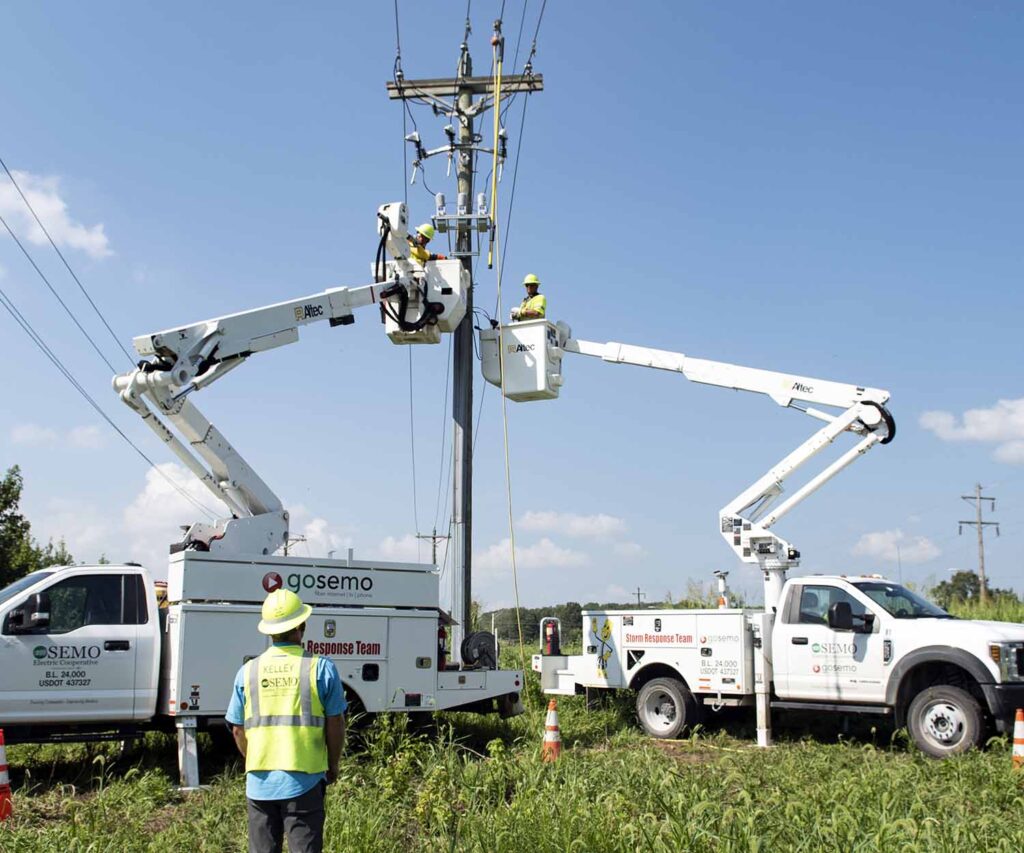
A federal program that’s helped millions of low-income households afford the cost of high-speed internet service is about to run out of money, dampening efforts to provide broadband to all Americans.
Due to robust demand, April is the last month that internet providers will receive full funding to aid qualifying households under the Federal Communications Commission’s Affordable Connectivity Program unless Congress provides additional support. ACP funding will be slashed by roughly half in May, and some providers are not planning to take partial reimbursements.
“NRECA is disappointed that today marks the last fully funded month of the Affordable Connectivity Program, leaving millions of rural and low-income households without this important tool to help with the cost of broadband service,” NRECA CEO Jim Matheson said April 30.
The $14 billion program provided a $30-per-month subsidy for eligible low-income households to help with the cost of their internet bills. Eligible households on tribal lands could receive up to $75 per month.
The ACP has supported over 23 million households since its creation through the bipartisan infrastructure law of 2021, according to the FCC. Electric cooperatives serve 92% of the nation’s persistent poverty counties and are deploying broadband networks in many hard-to-reach parts of the country.
“Internet service providers, including electric cooperatives, are embarking on a once-in-a-generation effort to build reliable broadband networks in some of the most challenging and expensive to reach parts of the country,” Matheson said. “Losing the ACP could jeopardize these efforts and undermines the goal of connecting all families with reliable, affordable broadband service.”
NRECA conducted a survey in the summer of 2023 that showed strong participation in and support for ACP by member co-ops. At least 57% of respondents said ACP discounts resulted in new broadband customers that would not have otherwise subscribed for service.
NRECA staying engaged
Although ACP is expiring, NRECA continues to engage with lawmakers and emphasize that broadband affordability is critical to adoption, particularly in high-cost, low-density rural areas.
Michele Furlong, director of member engagement for Mount Gilead, Ohio-based Consolidated Cooperative, said the ACP enrollment process could be challenging but stressed the value of the program.
“Being in a rural area—and we have some depressed areas in our service [territory]—that extra $30 does help out,” Furlong said.
Brett Streby, director of communications and marketing for Boyne City, Michigan-based Great Lakes Energy, echoed Furlong’s comments.
“Access to internet is becoming more and more a standard need. It’s not a convenience,” Streby said. “The availability of the ACP program opened this door and made it closer to realization for many who don’t have it.”
If policymakers extend the program or create a new one, Streby also recommended a more streamlined enrollment process.
“Some members explained the process for a subscriber to get enrolled in ACP was pretty clunky,” he said. “Simplifying that probably could have streamlined accessibility for a lot of our members.”
For MidSouth Electric Co-op in Navasota, Texas, the ACP helped defray costs for existing customers and generate some new internet subscribers, said Justin Stapleton, vice president of government relations. The co-op is considering adjustments to its base package as the program expires.
“We’re looking at offering a more cost-effective ACP-related package to use even though the funding has expired,” he said.
Molly Christian is a staff writer for NRECA.